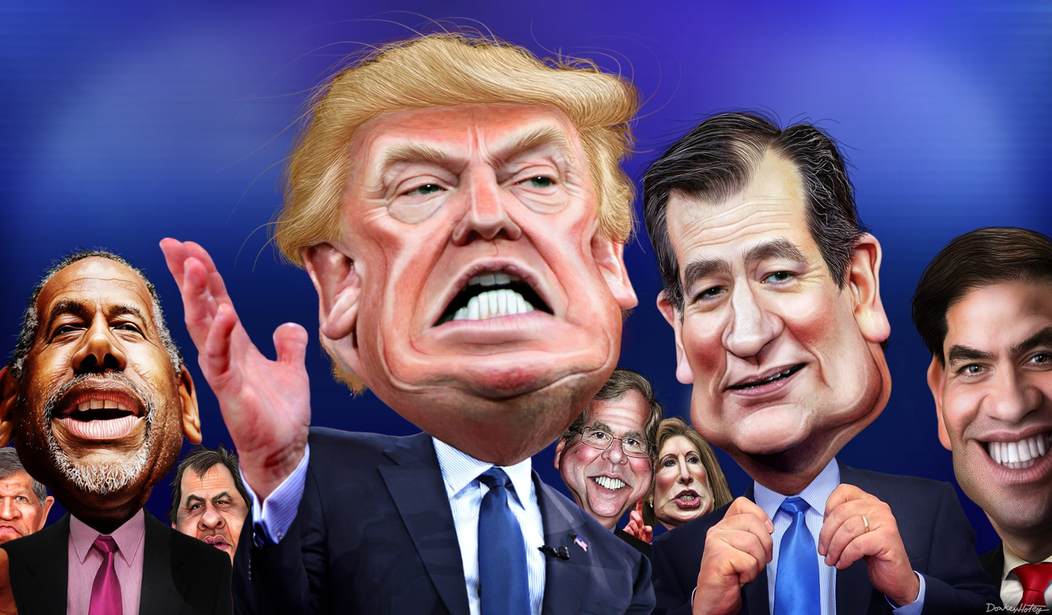Some time back, entertainer Penn Jillette made an observation about political forgiveness on his podcast which goes some distance toward explaining the current state of the presidential race. He noted that voters will forgive virtually anything if they perceive that a candidate is covertly working for their interests. Referencing gay rights, he noted:
We have Hillary Clinton — while you were alive, while you were sexually active, three years ago — saying marriage is just between a man and a woman…. And yet many people in [the gay community] are supporting Hillary, and their reason for supporting her is that “she was always in favor of gay rights, but she had to say what she had to, to be elected.”
She came out in favor of the Pacific trade deal, very strongly in favor of it, and now she’s against it.
And that’s not seen as flip-flopping, it’s not really seen as a revelation or learning something — it’s seen as “she is politically expedient, and we want someone who is politically expedient.”
The followers of Hillary Clinton seem to think they have a secret deal with her — where they understand what she really believes, what she’s really going to do — and they are willing to support her as she bends the truth in order to be elected…
Why do the people who support Hillary think that what she’s saying is to manipulate other people and not to manipulate them?
The same could be asked of Donald Trump supporters who have proven unshakable in their commitment to the candidate despite his well-documented wishy-washiness on virtually every issue. Trump has been pro-choice and pro-life, pro-gun and anti-gun, for socialized medicine and against Obamacare. He has been all things to anyone willing to believe him, and yet his supporters seem to think they have this secret deal that Jillette speaks of, where they know what Trump really believes and what he’s really going to do. They believe, in essence, that Trump is their covert political agent. They imagine that he will do what they want, no matter what he has said in the past, and even despite some of the things he says now.
Jillette’s insight explains the perceived double-standard which some have presented between Donald Trump and Hillary Clinton when it comes to association with the Ku Klux Klan. Trump has taken a beating in the media, including from this author, for his initial hesitation to denounce David Duke and the KKK. Yet it has been noted that Hillary Clinton and other Democrats praised former KKK member Robert Byrd, the late Democrat senator from West Virginia. So why does she get a pass? Clinton gets the pass because of this secret deal, this unspoken understanding among minority constituencies that, no matter what she says or whom she breaks bread with, she really works for them.
These secret deals, as Jillette calls them, are not exclusive to candidacies like those of Clinton or Trump. To one extent or another, political support always comes with a degree of forgiveness. You never get a candidate with whom you agree 100% of the time. Whatever percentage of disagreement exists is forgiven on the basis that the candidate has your back more than the alternative. The question which voters must ask themselves, however, is that last presented by Jillette: what makes you think that your guy is manipulating other people and not manipulating you?
We have a term in the wonk lexicon for this dynamic between constituencies and their representatives. It’s called political capital. Politicians and other political players accumulate this capital through various ingratiating means — campaign promises, rousing rhetoric, and the delivery of spoils. They then spend their accumulated capital where needed to advance less popular objectives or bolster their own influence. In Hillary’s case, she accumulates political capital with minorities by speaking to their concerns and championing their causes, and can then endure associations with someone like Byrd.
When activists complain about “the establishment,” this economy of political capital is primarily what they’re referring to. It is “business as usual.” This is how Washington, your state capital, and your city hall each work. People cut deals, make promises, and deliver spoils, carefully maintaining a balance between ingratiating constituents and advancing their own agenda. The anti-establishment sentiment which has fueled Trump’s candidacy imagines that politics can somehow work another way, that Trump will get in there and somehow “just do” whatever Trump supporters think ought to be done. But that’s not true, and the extent to which Trump’s candidacy reflects the “secret deal” of political capital proves it. All he’s doing is getting people to buy into a promise, to adopt him as their guy, same as any other politician. He’s no different, despite a supposed difference remaining the pillar of his brand.
“Anti-establishment” is an advertising gimmick, like “low-fat.” Eating too much of anything will get you fat, and any politician will play politics. You can make yourself feel better by eating “low-fat.” You can make yourself feel better by voting “anti-establishment.” But these rhetorical qualifiers will not change how anything actually works.









Join the conversation as a VIP Member